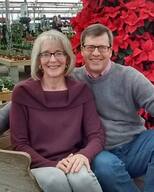 Because the Culturally Appropriate Principle is the one we can most easily overlook, I have taken additional time and space to discuss it. In week one I pointed to several Biblical passages that describe the early church’s challenges with becoming cross-cultural—reaching the Gentiles as well as the Jews. Week two I talked about missionary concepts that when applied correctly they can help us find our way either over, under, around, or through the dividing wall between our culture and others in the world (Ephesians 2:14). Today's article provides some specific examples as we attempt to live as Paul lived.“To the Jews I became as a Jew, so that I might win Jews…to those who are without the law, as without law…to the weak I became weak…I became all things to all men, so that I may by all means save some” (I Corinthians 9:20-22). To be clear, let me state that being culturally appropriate isn’t just a topic for conversations with individuals whose native language isn’t English or whose skin color is a bit different than our own. In fact, the first major cross-cultural experience of my life happened at the age of 16 when my family moved from northeast Wyoming to northeast Oklahoma. While the climate change was huge, the cultural shift was probably even greater. And one of those BIG shifts was the way people did church. But you don’t have to move 1,000 miles away to encounter cultural barriers. They can exist even in your own neighborhood. A few days ago, I was visiting with John Mark Hansen about the Culturally Appropriate Principle. Many of you know John Mark. He and his wife Cheryl have worked among the Chinese in Taiwan and in Panama. The latter also required them to be able to navigate the Latino cultures of Costa Rico as well as Panama. As we discussed Barriers and Bridges, I asked him specifically about some things they encountered as they worked among the Chinese. He mentioned that a good connecting point with Chinese is that they love western wedding traditions. But John Mark quickly switched the conversation to say that we needed to learn how to be cross-cultural in our own neighborhood. He then described two specific neighbors:
He said, “Stop and think for just a minute how differently you would start a conversation with these two very different neighbors, let alone begin a spiritual conversation.” To expand on that reality, let me say that sometimes we have cross-cultural encounters within our own home. Advances in technology and huge shifts in cultural mores are forcing parents to have conversations with their children that they wish they didn’t have to have. And I’m not just talking about asking my grandkids how to use my cell phone. Day-to-day life can become very complex for those of us who grew up in the US. When we are seeing to engage immigrant families, we need to understand they are living in that complexity as well, PLUS they are trying to figure out how to live in a world that’s vastly different from where they were raised. A conversation I often have with language pastors relates to the reality that their children cannot be raised as their parents raised them. That opportunity was lost when they immigrated to the U.S. Many immigrant parents struggle to make a living, and often both have to work to make ends meet. That means their children are often latch key kids. I’ve known immigrant parents who have been arrested for child neglect or even abuse because they were raising their children as they were raised. Sometimes an older child becomes the translator in day-to-day business transactions because their English skills are better than their parents. Stop to think about the role reversal that is taking place in such situations and the impact that has on a parent-child relationship. The pastor and leaders of a language church also have to figure out how they are going to minister to children and youth who are more comfortable in English than they are in their parent’s heart language. And they have to do it while they are figuring out how to survive themselves. Paul’s philosophy for dealing with a complex, multi-cultural world in which he ministered (and first-century Corinth definitely fell into that category) was this: “For though I am free from all men, I have made myself a servant to all, that I might win the more” (I Corinthians 9:19). A servant is called to be obedient to his master. As servants of God, we are called to “make disciples of all ethnic groups” (Matthew 28:18-20). Within the geographical boundaries of the Heartland Church Network we have hundreds of different cultures represented. Are you willing to take the time and effort to reach across those cultural divides for the sake of the Gospel? John Mark and Cheryl Hansen are! As I was finishing this article, they stopped by the office to run off some sermon outlines as he will be a supply preacher at Harrison Street Baptist Church this next Sunday. With them was a lady from Iran (from the Persian culture) who just arrived in the US with her husband and two children. She has a psychology degree and her husband is enrolled at UNO, and he is pursuing post-doctoral work in bio-metrics. The Hansens have connected with this family to help them navigate their new world and to building relational bridges over which they pray God will open avenues for them to share the Gospel. Pray for them and for your own opportunities to build relational bridges. Yours in Christ, Mark R. Elliott, AMS
0 Comments
Leave a Reply. |
AuthorRetired in April 2022, Mark R. Elliott served as a Director of Missions (Associational Mission Strategist) in Western Iowa and Eastern Nebraska for almost three decades. He is a strong advocate for obedience and Biblically based disciple making. As such, he knows that making healthy disciples requires Christian leaders to be constantly pursuing spiritual maturity—be lifelong learners. Because of the time constraints of ministry, most pastors focus their reading list on resources that assist them in teaching and preaching the Word of God. As such, books focusing on church health, leadership development, and church growth tend to find their way to the bottom of the stack. With that reality in mind, Mark has written discussion summaries on several books that have helped him to personally grow in Christ and that tend to find themselves on the bottom of most pastor’s stack. Many pastors have found them helpful as they are able to more quickly process great insights from other pastors and authors. Archives
April 2022
Categories |
Looking for something? |
© COPYRIGHT 2024. ALL RIGHTS RESERVED.
|




 RSS Feed
RSS Feed
